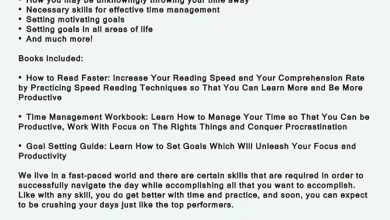Problem Solving Skills For An Event Organiser

As an event organiser, problem-solving skills are crucial to the success of your events. From unforeseen challenges to managing a network of people and dealing with last-minute changes, event planning requires thinking on your feet and finding solutions quickly.
Problem-solving skills for an event organizer include critical thinking, strategic thinking, analytical thinking, and big-picture thinking.
In this article, we will discuss the essential problem-solving skills for an event organiser, why they are important, and how they can be developed to ensure a successful event.
Whether you are an experienced event planner or just starting, this article will provide valuable insights into improving your problem-solving skills to take your events to the next level.
What Is Event Planning?
Event planning is the process of organizing and coordinating all the aspects of an event, such as conferences, weddings, concerts, trade shows, and other gatherings.
This includes tasks such as selecting a venue, creating a budget, coordinating logistics, managing vendors, promoting the event, and ensuring that everything runs smoothly on the day of the event.
The goal of event planning is to create a memorable and successful experience for attendees while achieving the objectives of the event’s organizers.
Essential Event Planning Skills
To be a successful event organiser, there are several essential event planning skills that you must possess. These skills include:
- Organisational Skills: Event planning requires a high level of organisation to manage numerous details.
- Planning Process: You need to understand the planning process and how to develop a comprehensive plan that includes all aspects of the event, from venue selection to ticket sales.
- Problem-Solving Skill: As an event organiser, you will encounter unexpected challenges that require quick and effective solutions.
- Leadership Skills: You must possess strong leadership skills to effectively manage a team of event staff and vendors.
- Communication Skills: Communication is key in event planning, and you must possess strong verbal and written communication skills.
Problem Solving Skills For An Event Organiser
Effective problem-solving skills help you overcome these challenges and ensure the event’s success. Below are some key problem-solving skills that are essential for event organizers:
- Critical Thinking: Critical thinking involves analyzing information and evaluating different options to develop effective solutions.
- Strategic Thinking: Strategic thinking includes looking at the big picture and creating a long-term plan to achieve event goals.
- Analytical Thinking: Analytical thinking involves breaking down complex problems into smaller, more manageable parts and analyzing each component to develop a solution.
- Big-Picture Thinking: Big-picture thinking includes considering all aspects of the event, including the attendees, venue, logistics, and budget, to develop a comprehensive solution.
Importance Of People In Event Planning
People are an essential aspect of event planning. Whether it’s the attendees, speakers, event staff, or vendors, people play a crucial role in the success of an event. Here are some essential points to keep in mind regarding people in event planning:
- Importance Of People In Event Planning: The success of an event depends mainly on the people involved. From planning and organization to execution and follow-up, the people involved at every event stage impact its outcome.
- Networking Skills: Building a network of contacts in the events industry is critical for an event planner. This help with finding vendors, sponsors, and speakers and gaining insights into industry trends.
- Building Relationships: Besides networking, building strong relationships with people is crucial. Good relationships lead to repeat business, referrals, and positive word-of-mouth advertising.
- Interpersonal Skills: Strong interpersonal skills are essential for event planners. These skills help with communication, conflict resolution, and relationship building.
- Range Of People: Event planners need to work with various people, including executives, event staff, vendors, and attendees. It’s important to be able to communicate effectively with everyone involved.
Importance Of Time Management Skills
Time management is a critical skill every event organizer must have to execute successful events. In this section, we will discuss the importance of time management skills for an event organiser.
- Importance Of Time Management Skills: Time management is crucial for event organizers to ensure that all tasks are completed within the set deadlines. Time management skills help event organizers to be organized, proactive, and efficient in their work.
- Prioritizing Tasks: Event organizers often face multiple tasks that need to be completed within tight deadlines. It is important to prioritize tasks based on their level of urgency and importance. This ensures that the most important tasks are completed first and the less critical tasks are tackled afterward.
- Allocating Blocks Of Time: Allocating blocks of time is an effective way of managing time. This involves dividing the day into time slots and assigning specific tasks to each time slot. Allocating blocks of time helps an event organizer to focus on one task at a time and complete it within the set time frame.
- Aptitude For Time Management: The aptitude for time management refers to an individual’s natural ability to manage their time effectively. Some people have a natural aptitude for time management, while others need to develop this skill over time.
How An Event Organiser Creates A Memorable Experience For Attendees?
Creating a memorable experience for attendees is one of the most important goals of an event planner. Attendees are the heart of any event, and their experience makes or breaks the event’s success.
Event planners must consider every aspect of the attendee experience, including the venue, food and beverage, entertainment, and activities.
In addition to creating a memorable experience, event planners must also ensure the flawless execution of the event. This includes coordinating with vendors, managing staff, and addressing unforeseen challenges during the event.
Importance Of Job Experience For An Event Organiser
Job experience is also crucial for event planners. Experienced planners are better equipped to handle the complexities of event planning, from managing budgets to negotiating with vendors.
Having a deep understanding of the events industry and the ability to anticipate and solve problems makes all the difference in the success of an event.
Importance Of Choosing The Right Speakers For An Event Organiser
Choosing the right speakers is crucial to the success of an event. Keynote speakers set the tone for the event and motivate attendees, while motivational speakers inspire and encourage them to take action.
In addition to selecting the right speakers, engaging the audience during their speeches is also important. This is done through interactive activities or Q&A sessions. Engaging the audience keeps their attention and ensures they take in the shared messages.
Ultimately, choosing the right speakers and engaging the audience is to create a memorable and impactful experience for attendees.
Importance Of Choosing The Right Venue & Creating The Right Atmosphere For The Event
Choosing the right venue is crucial for the success of any event. When selecting a venue, it’s essential to consider various factors such as the location, accessibility, capacity, and amenities offered.
It’s always a good idea to consider potential and alternative venues, especially if you’re working with a tight budget or your first choice of venue is unavailable. You can also explore non-traditional spaces such as outdoor areas, warehouses, or galleries, creating a unique and memorable experience for your attendees.
Creating the right atmosphere for your event is critical; the venue plays a significant role in achieving this. You can work with the venue staff to ensure the space is set up correctly and that the lighting, sound, and decorations suit your event. Consider adding special effects or interactive displays to enhance the atmosphere and make the event more memorable.
Creative Solutions To Common Problems For An Event Organiser
When it comes to event planning, problem-solving and finding creative solutions are essential skills. Event planners must be able to think on their feet and come up with creative solutions to challenges that may arise.
Creative Solutions To Common Problems
- Have a backup plan for unforeseen challenges, such as inclement weather, technical difficulties, or transportation issues.
- Use creative décor, lighting, and ambiance to transform a standard venue into a unique and memorable space.
- Offer interactive and engaging activities for attendees, such as workshops, games, or demonstrations.
Tech Solutions For Events:
- Use event management software to streamline the planning process, including registration, ticketing, and communication with attendees.
- Incorporate interactive technology, such as virtual or augmented reality, to create a more immersive event experience.
- Use live streaming technology to expand the event’s reach beyond the physical location.
Alternative Solutions For Unique Situations:
- Consider hosting the event outdoors, at a coworking space, or in an unconventional venue if the original venue falls through.
- If the target audience is difficult to reach, consider hosting the event in a location or at a more convenient time.
- For budget constraint issues, consider partnering with sponsors or offering tiered ticketing options to offset costs.
Conclusion
We hope after reading this article, you now understand problem solving skills for an event organiser. By developing strong problem-solving skills, event planners can create memorable and successful events that leave a lasting impact on attendees.
Event planning involves many skills, including critical thinking, communication, time management, and creativity. Successful event planners must be able to handle unforeseen challenges and develop creative solutions to common problems.
Additionally, they need to have strong interpersonal skills to work with various people, including event attendees, executives, and speakers.



